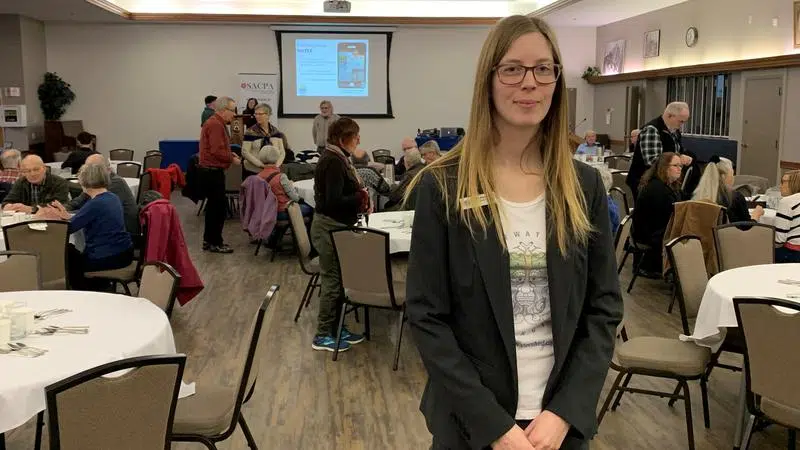
Conservation must be done at all levels to protect Oldman Watershed
LETHBRIDGE, AB – The Oldman Watershed Council (OWC) is spreading the word about the public education and conservation work they do in the region, but say everyone needs to do their part.
Education Program Manager Sofie Forsström spoke to dozens of attendees at the Southern Alberta Council on Public Affairs (SACPA) last week.
She says the Oldman Watershed is not just part of southern Alberta – it is southern Alberta.
“As we live in a very semi-arid, so quite a dry climate, our surface water, our river is very important. It’s used for drinking water, it’s used to grow our food, so keeping it clean and healthy is very important because it keeps up fed and hydrated and alive.”
